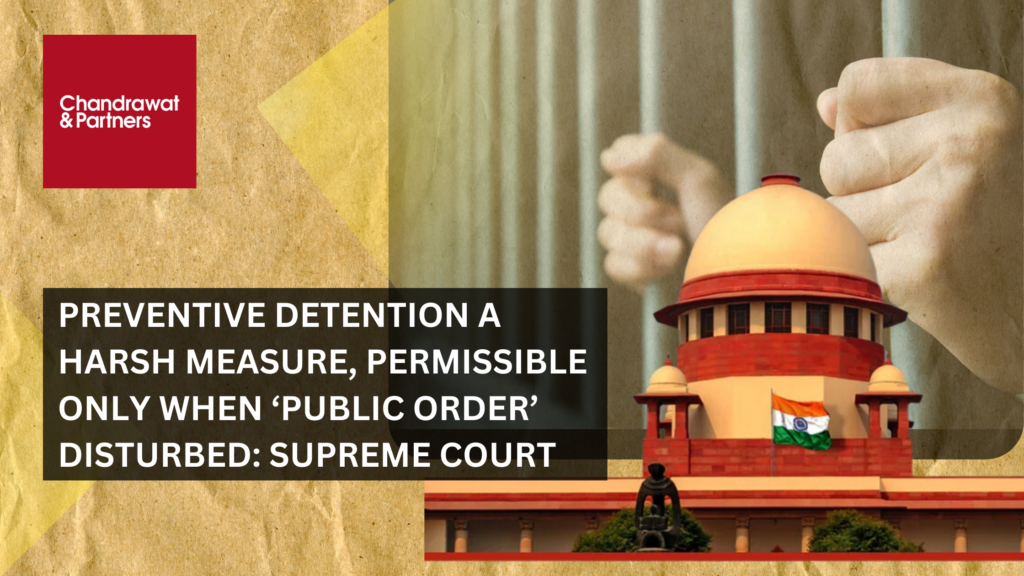Home > Recent Judgements > Preventive Detention A Harsh Measure, Permissible Only When ‘Public Order’ Disturbed: Supreme Court
DEC 17, 2024
BACKGROUND
In the case, Arjun s/o Ratan Gaikwad vs the state of Maharashtra and Ors, the Supreme Court observed that preventive detention is a harsh action, which cannot be invoked against every slight breach of peace. Instead, the power can be invoked only when the proposed detainee’s action tends to disrupt “public order”. Preventive detention involves the detention of a person without any formal charges or a trial. The reason behind this measure is to prevent anticipated threats to public order or national security. In India, preventive detention laws are mainly governed by Article 22 of the Indian Constitution and specific statutes like the Public Safety Act and the National Security Act (“NSA”).
In the present case, the petitioner was associated with the production of illegal liquor, causing local inconvenience. Despite six cases involving the accused, no evidence related to his acts of public disorder was found, and the accused was never arrested. The Supreme Court found the statements of the witness insufficient and quashed the detention order for the absence of substantiation.
KEY ISSUES
- Whether the authority can apply preventive detention laws for acts that mainly disturb law and order but do not affect public order.
- How should authorities differentiate between law & order cases and public order disturbances when issuing detention orders?
- How should authorities differentiate between law & order issues and public order disruptions while discharging detention orders?
JUDGEMENT
The Supreme Court, in its judgment, quashed the preventive detention order against the petitioner and emphasized the difference between public order and law and order. The Court reiterated that not every violation of peace or law and order could invoke preventive detention. Laws of preventive detention should be applicable only when the action of the proposed detainee tends to disrupt public order that is more consequential than a mere breach of peace. The Court referred to a preceding judgment that condemned the recurring use of preventive detention orders stating that such laws should not be used as a tool for imposing law and order.
OBSERVATION
The Supreme Court observed that every contravention of peace does not lead to public disorder. The court emphasized that preventive detention laws should be applied only in exceptional circumstances and not as a regular course of action for addressing law and order issues. The judgment criticized the improper use of preventive detention as a measure to bypass regular legal procedures, highlighting the necessity of respecting constitutional liberties. This decision of the Supreme Court decision has maintained the sanctity of personal liberty preserved in the Indian Constitution.
For more information or queries, please email us at
enquiries@chandrawatpartners.com





